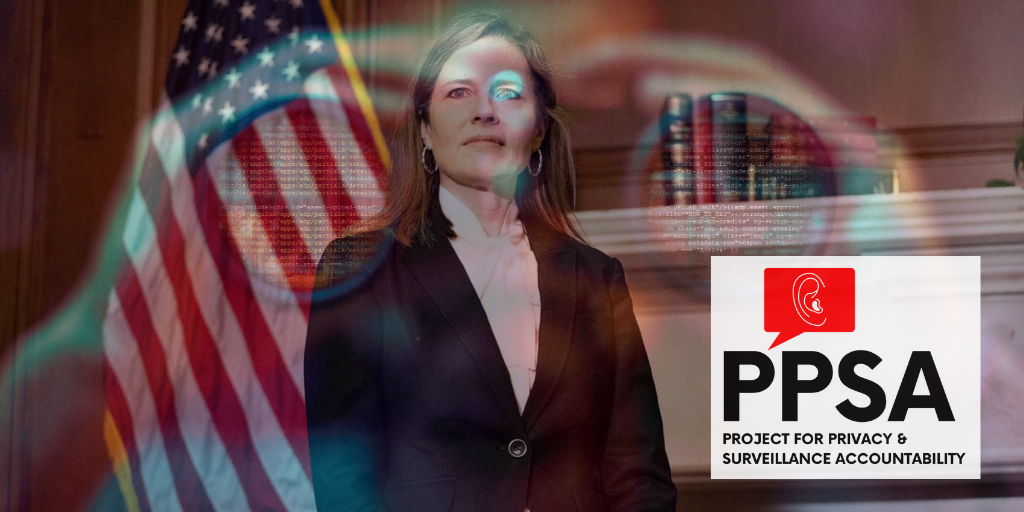|
Whether you lean left or right, the Senate majority will likely confirm Judge Amy Coney Barrett to the U.S. Supreme Court. What will this mean for surveillance and Fourth Amendment issues by that Court?
First, consider the good record of her predecessor. In 2018, the late Justice Ruth Bader Ginsburg had joined the majority in restricting the government’s ability to get ready access to Americans’ location history through cell phone/mobile tracking technology. How might a Justice Barrett rule on similar issues? Sitting on the U.S. Court of Appeals for the Seventh Circuit, covering the Upper Midwest, Judge Barrett has had fewer opportunities to hear cases of constitutional import than a judge sitting on the D.C. Circuit, much less a Justice of the Supreme Court. But PPSA found three rulings issued by Judge Barrett that at least hint at her alignment with the core principles of privacy and strict limits on surveillance. In Rainsberger v. Benner, Judge Barrett declined to grant qualified immunity to a detective who “submitted a probable cause affidavit that was riddled with lies and undercut by the omission of exculpatory evidence.” To those familiar with the faulty surveillance warrants issued against Trump campaign associate Carter Page, that description sounds familiar. A justice willing to acknowledge that the process used to obtain warrants is flawed and subject to abuse would be progress. Confirming a justice willing to hold individual government officials accountable for misconduct related to these flawed warrants is a good sign for surveillance and privacy reformers. Judge Barrett’s ruling in United States v. Terry asked the racy question: “Is it reasonable for officers to assume that a woman who answers the door in a bathrobe has authority to consent to a search of a male suspect’s residence?” Judge Barrett correctly decided that was not a reasonable assumption. This strong interpretation of Fourth Amendment rights shows promise if applied in the same way to electronic surveillance. Too many government searches are based on flimsy and incomplete evidence. Insisting on strict adherence to the text of the Fourth Amendment and not rewarding the “inferential pileup” that the government so often resorts to could be an important step in reestablishing accountability. Lastly, in United States v. Watson, Barrett wrote that a district court should have suppressed evidence of a firearm in a felon-in-possession case when the gun itself was discovered based on an unreliable call in a state where having a firearm is legal. This ruling should please privacy advocates on two fronts. First, it gives further evidence that Judge Barrett adheres to a strong interpretation of Fourth Amendment rights for individual citizens. Second, it shows she is willing to give protected activities the weight they deserve. Applied to surveillance cases, such thinking might signal a willingness to give similar weight to activities protected by the First Amendment. It remains to be seen exactly how a Justice Barrett would apply constitutional principles to surveillance issues, especially electronic surveillance. Privacy advocates must also remember that if she is confirmed, Barrett will still have no direct oversight over the Foreign Intelligence Surveillance Court. Chief Justice John Roberts chooses those judges. There are reasons to hope, however, that a Justice Barrett would rule favorably on the core issues surrounding government surveillance should a relevant case come before the Supreme Court. Comments are closed.
|
Categories
All
|


 RSS Feed
RSS Feed